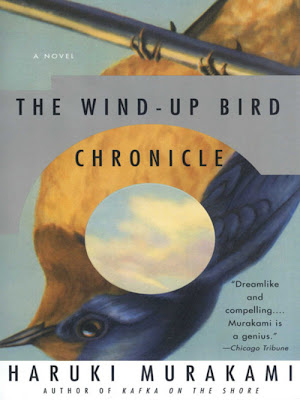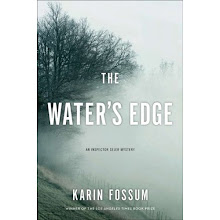Welcome back Dear Readers,
Dear Friends.
This weekend
The Library of Congress
celebrates
its
National Book Festival.
In honor of this joyous occasion,
I thought I'd share some of
my favorites with you.
Italian Shoes
by Henning Mankell
I have read most of Henning Mankell's fine novels. Loved all of the Wallander series and a couple of his works that do not feature the grumbling detective.
"Italian Shoes is a wonderful novel, outstandingly translated by Laurie Thompson. It is tender and reminiscing, profoundly sad, and tells a rich story... It is quietly told, yet rich in all manner of emotions. The story is one that will make you pause to reflect and consider. Italian Shoes is a deep, timeless, very impressive tale of redemption and renewal, about a man imprisoned by fear and pride."
(Peter at Nordic Book Blog)
As it turns out, Kenneth Branagh is adapting this for film.
Anthony Hopkins and Judi Dench are joining him
in this movie that I will be anxiously waiting to see.
A Fine Balance
by Rohinton Mistry
This is another work read a long time ago
that always seems to stand out to me.
Winner: L.A. Times Prize in Fiction, Commonwealth Writers Best Book of the Year,
and Giller Prize.
"At 600 pages, Mistry's stunning second novel looks intimidating,
yet this moving tale of four people caught up in India's 1975 state of emergency — when Prime Minister Indira Gandhi suspended the constitution in order to hold on to power following a scandal — is an incredibly detailed, compelling read that sweeps you along from the opening pages and is over far too soon.
Though it takes place in a time of political upheaval and chaos,
A Fine Balance is not a political diatribe. Instead, it is a beautiful and compassionate portrait of the resiliency of the human spirit when faced with death, despair, and unconscionable suffering. Set in an unnamed city by the sea, it is the story of four disenfranchised strangers—a widow, a young student, and two tailors—who are forced by their impoverished circumstances to share a cramped apartment. Initially distrustful of one another, Dina, Maneck, Ishvar, and Om gradually build loving, familial bonds and learn together "to maintain a fine balance between hope and despair" in a society suddenly turned inhumanly cruel and corrupt."
(From Barnes & Nobel.)
A Soldier of the Great War
by Mark Helprin
Here again, I've read many of Helprin's novels and have really enjoyed them.
This was one of my first.
"In the summer of 1964, Alessandro Giuliani, an old and partially lame professor of aesthetics —white hair and mustaches, white suit, cane— is thrown off a trolley on the outskirts of Rome after he comes to the defense of a young and semi-literate factory worker who has irritated the driver. Alessandro and Nicolò, the boy, decide to make the very long journey into the mountains, on foot, as a defiant pilgrimage away from those things --worthless and imposed--that people allow to take the place of real life. In their trying walk, the towns of Italy glittering below them in the warm summer air, the sea polished by a weightless fume of silver light the old man is moved to tell the story of his life: of a youthful paradise instantly shattered by the First World War, of how he lost one family, gained another, and lost it as well. The boy is enthralled by the war and its spectacular events, by Alessandro's privations, heroism, and adventures, and by the extraordinary beauty of the story and in its telling. At the end of the long walk, however, he comes to understand its deeper import, that love is superior to and greater than all the glories of civilization, but that each is heightened by the understanding of the other, and that even in the face of death, life can be made worthwhile if these things are made to run together seamlessly, like a song."
(From MarkHelprin.com)
The Collected Stories
by William Trevor
I devoured all 1261 pages of this amazing collection
of short stories.
His novels and novellas have been great.
You may be familiar with them.
A number of his books have been made into entertaining films.
I hope you've seen them.
"A good number of these miniatures are quietly charged with the unquestioning, stoical, intoxicating sadness of so many rural Irish lives of the past. But his bleak English suburbs are conjured as evocatively, as are his hot tourist destinations from Jerusalem to Cap Ferat, and the denizens of his wrecked aristocratic mansions. He is wonderful on roads not taken, on responsibilities ducked, on guilty secrets and stunted compromises. Buildings and gardens come to life as he describes them. And he is brilliant on marriage, the tacit détentes and unasked questions that lock spouses together as powerfully as do love and fondness."
(Joseph O'Connor at The Guardian)
Babel Tower
by A.S. Byatt
"In BABEL TOWER a cast of striking characters play out their personal dramas amid the clashing politics, passionate ideals and stirring languages of the early 1960s. Frederica (the heroine of VIRGIN IN THE GARDEN and STILL LIFE) now teaching English in an art college, is hiding herself and her son Leo from a violent husband; her urge towards freedom later leads to an angry, humiliating divorce case. Hers is not the only struggle: her friend Jude writes a novel, BABBELTOWER, which is tried for obscenity; her brother-in-law Daniel becomes involved in new movements for London's poor and distressed. Their crises mirror those of the age - abroad, this is the decade of the Berlin Wall, the Cuban Missile Crisis, the death of Kennedy; at home it is the era of the LADY CHATTERLEY case, of the Beatles, of Mods and Rockers, art school riots, the Profumo scandal. Moving and absorbing and full of comedy as well as strife, this superb novel brings our own recent past to vivid, and disturbing life."
(Amazon UK)
The Wind-Up Bird Chronicle
by Haruki Murakami
Murakami kills me.
And this is the first of his works that I read.
I love his culturally literate characters
that listen to Rossini,
boil pasta,
and groove to Monk in dark, smokey, jazz dives.
I love his stories of longing and love
and the surrealistic worlds that his characters populate.
And then there are the mysterious cats!
"The story of ''The Wind-Up Bird Chronicle'' (the title refers to a weird, unseen bird, whose cry is a recurring harbinger of evil) is a hallucinatory vortex revolving around several loosely connected searches carried out in suburban Tokyo by the protagonist-narrator, Toru Okada, a lost man-boy in his early 30's who has no job, no ambition and a failing marriage. When his cat disappears, he consults a whimsical pair of psychics, sisters named Malta and Creta Kano, who visit him in his dreams as often as in reality. Then his wife leaves him, suddenly and with no explanation, and he spends his days hanging out with an adolescent girl named May Kasahara, a high-school dropout obsessed with death, who works for a wig factory. At one point, seeking solitude, Toru descends to the bottom of a dry well in the neighborhood, and while he's down there, he has a bizarre experience, which might or might not be another dream: he passes through the subterranean stone wall into a dark hotel room, where a woman seduces him. This experience leaves a blue-black mark on his cheek that gives him miraculous healing powers. Eventually, he's rescued by Creta Kano, who reveals to him that she has been defiled in some hideous, unnatural way by Toru's brother-in-law, a politician whose rising career appears to be propelled by demonic powers.
As the plot proceeds, with Toru spending more and more time in the well or else in the mysterious hotel room, it becomes harder and harder to tell what's real and what's not. Toru's story is also interrupted at several points by characters who wander in to tell stories of their own, and these Boccaccio-like interpolations contain some of the best writing in the book. One, for example, is an account of a Japanese soldier's experiences in Outer Mongolia during the war. While on a spy mission in enemy territory, his outfit is captured by Mongolian and Russian soldiers. He is forced to watch one of his comrades being skinned alive, and then is left to die at the bottom of a well -- an experience that echoes or foreshadows Toru's. This story is balanced by another, in the second half of the book, about a soldier posted in Hsin-ching, the capital of Japanese-occupied Manchuria. With Chinese soldiers closing in, he is ordered to kill the animals in the zoo to prevent them from escaping. It's a terrible tale, told with icy coolness: ''The officer gave his order, and the bullets from the Model 38 rifles ripped through the smooth hide of a tiger, tearing at the animal's guts. The summer sky was blue, and from the surrounding trees the screams of cicadas rained down like a sudden shower.''"
(Jamie James - The New York Times)
The Fourteen Sister of Emilio Montez O'Brien
by Oscar Hijuelos
"In The Fourteen Sisters of Emilio Montez O'Brien, Oscar Hijuelos brings to life the rambunctious Montez O'Brien family. In a small Pennsylvania town, Nelson O'Brien runs the Jewel Box Movie Theater, raising 14 daughters and a son with his wife, Mariela Montez. Through the eyes of Margarita, the eldest daughter, the lives, loves and tragedies of the Montez O'Briens and their complex family relationships unfold. While reflecting on the life of Emilio, her doggedly masculine brother, Margarita also ruminates on the nature of femininity, family, sex, love and earthly happiness. Her musings recall exhilarating adventures, eliciting tears and laughter, and tenderly reveal the bounteous heart of a warm, passionate family. At once lush, erotic and gorgeously written, The Fourteen Sisters of Emilio Montez O'Brien is a masterwork by one of America's greatest writers."
(Google Books)
Midnight's Children
by Salman Rushdie
This poignant novel often had me laughing out loud!
Not something that I usually do.
Quite fascinating.
"Saleem Sinai is born at the stroke of midnight on August 15, 1947, the very moment of India's independence. Greeted by fireworks displays, cheering crowds, and Prime Minister Nehru himself, Saleem grows up to learn the ominous consequences of this coincidence. His every act is mirrored and magnified in events that sway the course of national affairs; his health and well-being are inextricably bound to those of his nation; his life is inseparable, at times indistinguishable, from the history of his country. Perhaps most remarkable are the telepathic powers linking him with India's 1,000 other "midnight's children," all born in that initial hour and endowed with magical gifts.
This novel is at once a fascinating family saga and an astonishing evocation of a vast land and its people-a brilliant incarnation of the universal human comedy. Twenty-five years after its publication, Midnight's Children stands apart as both an epochal work of fiction and a brilliant performance by one of the great literary voices of our time."
This novel is at once a fascinating family saga and an astonishing evocation of a vast land and its people-a brilliant incarnation of the universal human comedy. Twenty-five years after its publication, Midnight's Children stands apart as both an epochal work of fiction and a brilliant performance by one of the great literary voices of our time."
(goodreads)
So these are just a few books, of many, that I am particularly fond of.
If truth be told... I have been devouring police procedurals
by Larsson, Nesbo, Lackberg, Fossum, and Atkinson
at quite a clip.
























David,
ReplyDeleteGood encouragement to keep on seeking new things to read. Today I picked up Joseph Anton, the Rushdie memoir of life under the Fatwah.
Tattered Cover had signed copies...
grateful for the blog always, dewhy
Dear Don,
ReplyDeleteThank you for the kind words. There's always so much to read. Never enough time.
Best,
David